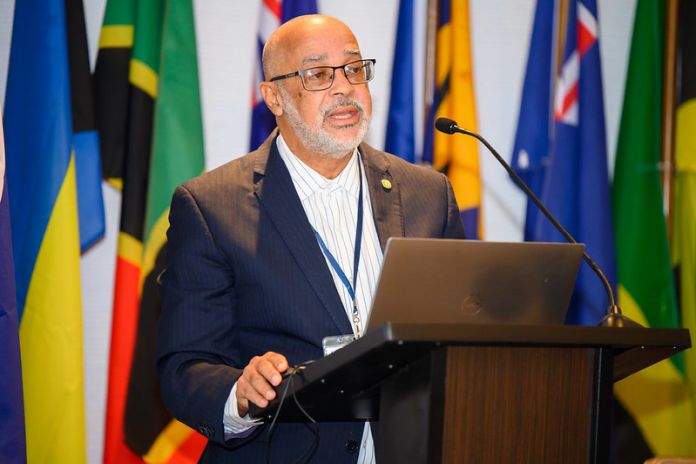BRIDGETOWN, Barbados – Highlighting the Caribbean education crisis, marked by significant underachievement in CXC results, particularly in Maths, director general of the Organisation of Eastern Caribbean States (OECS), Dr Didacus Jules, has pointed to eight key failures that have kept the region’s education system making very little progress for more than 50 years. These include persistent inequality, social challenges, colonial legacies, outdated education, limited access to higher education, lack of technology integration, poor policy development, and resource constraints.
Addressing stakeholders during the keynote presentation, Reimagining the Future (Again): Radical Shifts Needed for Caribbean Education Transformation, on the final day of the recent Regional Symposium and Policy Dialogue on Transforming Education, Dr Jules, a former registrar and chief executive officer of the Caribbean Examinations Council (CXC), said the failure to make real changes in education comes from not seeing tackling challenges as a connected, system-wide priority.
Dr Jules, who is trained in educational policy and curriculum instruction, and has extensive experience in education reform, social policy, and organisational transformation, stressed that true transformation goes beyond relying on technical experts or approaches such as focusing on Technical and Vocational Education and Training.
“What do we really mean by educational transformation? The problem is not just a skills problem – it’s a mindset problem. What we really mean by educational transformation is not a technical answer, but a political challenge with deep technical implications, requiring the broadest possible social coalition,” he said, emphasising the need for making policy shifts and fixing other connected factors to transform Caribbean education.
Pointing to philosophers who defined the purpose of education as the development of human virtue, the elevation of the human spirit, and the shaping of social and individual values, Dr Jules referenced the Caribbean Community (CARICOM) 1997 Ideal Caribbean Person, which embodies qualities such as emotional intelligence, environmental sensitivity, cultural grounding, and entrepreneurial capability, as values that most closely encapsulate the true purpose of education.
“Driving it all must be a compelling vision and purpose… the why of education. Throughout the entire march of human history, a constellation of thinkers has emphasised the ‘why’ of education. It is this definition of purpose that has guided education systems in every civilisation. Yet, it is sad that we in the Caribbean have only paid superficial attention to this crucial question,” the distinguished educator said.
The three-day regional symposium and policy dialogue on transforming education, hosted by the Caribbean Development Bank in collaboration with the CARICOM Secretariat, OECS Commission, The University of the West Indies and the ministry of education in the Cayman Islands, marked the first in a series of initiatives aimed at addressing critical educational challenges in the region, many of which were exacerbated by the COVID-19 pandemic.
It also represents a major step towards achieving Sustainable Development Goal 4, which emphasises inclusive, equitable, and quality education for all.





